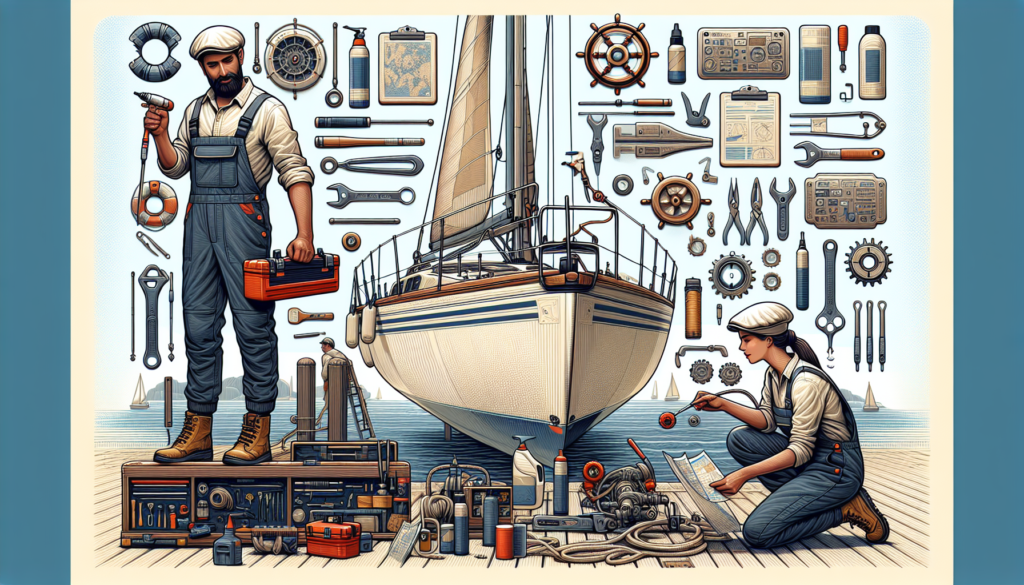Boat Maintenance Tips: Keeping Your Vessel Shipshape
Whether you’re a seasoned sailor or a novice boater, one thing is certain: proper maintenance is key to ensuring your vessel stays in top condition. From checking the engine to inspecting the hull, there are numerous tasks that need to be done regularly to keep your boat safe and seaworthy. In this comprehensive guide, we will delve into the world of boat maintenance and provide you with tips and tricks to help you navigate the waters with ease. So, grab your toolkit and let’s get started!
The Importance of Boat Maintenance
Before we dive into the nitty-gritty of boat maintenance tips, let’s first understand why it is so crucial. Just like any other vehicle, boats require regular upkeep to ensure they function properly and remain safe on the water. Neglecting maintenance can lead to costly repairs, breakdowns at sea, and even accidents. By taking the time to care for your boat, you can extend its lifespan, improve its performance, and most importantly, keep yourself and your passengers safe.
Inspecting the Hull
One of the first things you should do when it comes to boat maintenance is to inspect the hull. The hull is the watertight body of the boat that keeps it afloat. Check for any signs of damage, such as cracks, blisters, or abrasions. These can weaken the hull and compromise its structural integrity. If you notice any issues, it’s essential to address them promptly to prevent further damage.

In addition to visual inspection, you should also regularly clean and wax the hull to protect it from the elements. Saltwater, in particular, can be corrosive to the hull, so it’s important to rinse your boat thoroughly after each outing. Applying a fresh coat of wax can help maintain the hull’s shine and prevent oxidation.
Engine Maintenance
The engine is the heart of your boat, so it’s essential to keep it in top working condition. Regular engine maintenance includes checking the oil levels, changing the oil and oil filter, inspecting the fuel system, and replacing the spark plugs. It’s also crucial to flush the engine with fresh water after each use, especially if you’ve been in saltwater.

Proper engine maintenance not only ensures that your boat runs smoothly but also helps prevent costly repairs down the line. If you’re not comfortable doing engine maintenance yourself, it’s best to have a professional mechanic take care of it for you.
Electrical System Check
The electrical system is another critical component of your boat that requires regular maintenance. Inspect the wiring for any signs of wear or corrosion, and test all electrical components, such as lights, pumps, and radios, to ensure they are functioning correctly. It’s also a good idea to check the battery and replace it if necessary.

Proper maintenance of the electrical system is essential for the safety of everyone on board. Faulty wiring or malfunctioning electrical components can lead to fires or other hazardous situations, so it’s crucial to address any issues promptly.
Checking Safety Equipment
Ensuring that your boat is equipped with the necessary safety equipment is a crucial part of maintenance. Check that you have an adequate number of life jackets on board, as well as a throwable flotation device, a fire extinguisher, a whistle or horn, and a first aid kit. It’s also important to check the expiration dates on these items and replace them as needed.

Having the right safety equipment on board can mean the difference between life and death in an emergency situation. It’s not enough to just have the equipment you must also know how to use it properly. Take the time to familiarize yourself and your passengers with the location and operation of all safety equipment on board.
Winterizing Your Boat
As the boating season comes to an end, it’s essential to properly winterize your boat to protect it from the elements. This process includes draining the engine of all water, adding antifreeze, removing the battery, and covering the boat with a tarp or shrink wrap. Proper winterization can prevent damage from freezing temperatures and ensure that your boat is ready to go when the weather warms up again.

Winterizing your boat is a critical step in boat maintenance, especially if you live in a region with cold winters. Neglecting to winterize your boat can lead to cracked engine blocks, burst pipes, and other costly damage. It’s worth taking the time to do it right.
Expert Opinions
We reached out to Captain Jack Johnson, a seasoned sailor with over 30 years of experience, for his insights on boat maintenance. According to Captain Jack, “Regular maintenance is key to keeping your boat in top condition. It’s essential to stay on top of things and address any issues promptly to prevent more significant problems down the line.”
Common Misconceptions
One common misconception about boat maintenance is that it’s only necessary for larger vessels. In reality, boats of all sizes require regular upkeep to ensure their safety and performance. Whether you have a small fishing boat or a luxury yacht, proper maintenance is essential to protect your investment and keep you safe on the water.
Conclusion
To wrap things up, boat maintenance is a critical aspect of boat ownership that should not be overlooked. By following the tips outlined in this guide, you can ensure that your vessel remains in top condition and that you and your passengers stay safe on the water. Remember, prevention is always better than cure when it comes to boat maintenance, so take the time to care for your boat, and it will reward you with years of enjoyment on the open seas.



